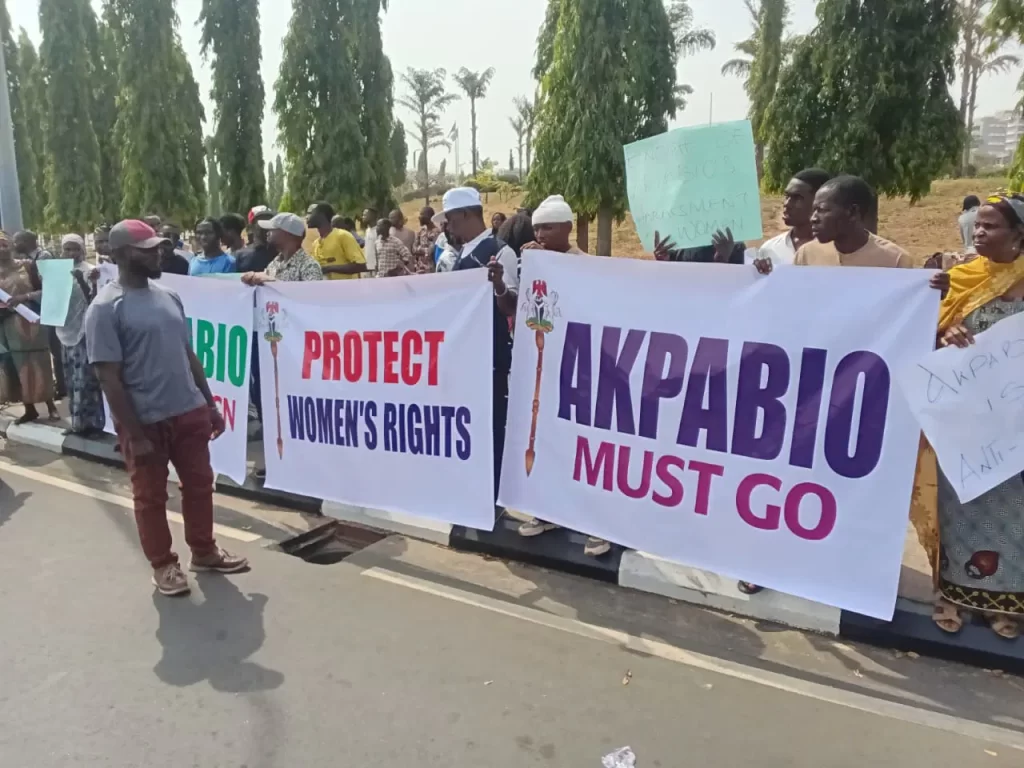While many women’s rights advocates and civil society groups have shown strong support for Senator Natasha Akpoti-Uduaghan in the wake of her sexual harassment allegation against Senate President Godswill Akpabio, former lawmaker Senator Shehu Sani has struck a different tone — one that has stirred nationwide debate.
In a public post on Facebook, Sani, who represented Kaduna Central in the 8th National Assembly, urged the senator to provide concrete proof of her claim. Without it, he warned, such a serious allegation risked becoming a smear campaign that could undermine both reputations and broader gender justice efforts.
“If a female Senator alleges sexual harassment by the Senate President, she must be bold to provide proof — concrete evidence — or else it becomes a smear campaign. Allegation is not evidence,” he wrote.
Sani acknowledged the reality of silence and stigma that victims often face, but expressed concern about the potential misuse of harassment claims in political battles. His post quickly became a flashpoint online, with many agreeing that evidence must anchor such claims, while others criticized the former senator for appearing to second-guess a woman’s testimony in a male-dominated political environment.
The Allegation That Rocked Nigeria’s Senate
The controversy dates back to February 2025, when Senator Natasha Akpoti-Uduaghan (PDP, Kogi Central) publicly alleged that Senate President Akpabio made inappropriate and suggestive remarks toward her during a closed-door committee session on December 8, 2023. The remarks, which she said were laced with an unspoken expectation of sexual favors, left her deeply uncomfortable.
Recounting the incident during an interview on Arise TV, she stated that she felt both targeted and vulnerable as the only woman in the room. Although she maintained her composure during the meeting, she later filed a formal complaint.
Through his lawyers, the Senate President denied all allegations, describing them as fabrications aimed at damaging his political image. He accused Akpoti-Uduaghan of acting out of political malice and seeking attention through falsehoods.

Fallout: Suspension and Street Protests
Instead of prompting an internal probe, Akpoti-Uduaghan’s allegation led to a six-month suspension from Senate activities. The Senate’s Ethics Committee dismissed her complaint on procedural grounds, claiming it lacked proper sponsorship from another senator — a rule many critics described as an institutional roadblock.
Her suspension triggered immediate backlash from women’s groups, lawyers, and civil society organizations. Protests broke out across Abuja, Lagos, Benin, and Kaduna under the hashtag #WeAreAllNatasha, with demonstrators demanding a fair hearing rather than disciplinary action against the accuser.
Critics accused the Senate of closing ranks to shield one of its most powerful figures instead of addressing serious concerns of misconduct. To many observers, the suspension seemed less like due process and more like retaliation.

Legal Escalation: Demands and Counter-Demands
In April 2025, senior lawyer Olisa Agbakoba (SAN), acting as counsel to Akpabio, issued an open letter demanding that Natasha address what he called contradictions in her version of events. He pointed to her continued appearances at Senate functions and perceived friendliness with Akpabio as indicators that her claim lacked credibility.
Agbakoba argued that the behavior she described did not meet the standard definition of sexual harassment under national or international legal frameworks. He further warned that unsubstantiated public accusations could expose her to legal consequences.
In response, Akpoti-Uduaghan pushed back in a formal statement issued on April 30, 2025. She clarified that she had not received any earlier correspondence from Agbakoba and would not be pressured into presenting her case in the media. According to her, the matter was already in court, and any demand for evidence outside judicial channels was improper and prejudicial.
She insisted that professionalism, not comfort — guided her conduct after the incident. Maintaining a cordial public demeanor, she argued, should not be misinterpreted as approval or acceptance of inappropriate behavior.
Defamation Lawsuits: A New Battlefield
Meanwhile, the conflict took another twist when Ekaette Akpabio, wife of the Senate President, filed two defamation suits against Natasha in March. The suits seek ₦350 billion in damages, citing the reputational harm and emotional distress caused by the allegations.
In a sharp counter-move, Akpoti-Uduaghan filed her own ₦100 billion suit, accusing the Akpabios of orchestrating a campaign of legal intimidation to silence her.
Divided Opinions Among the Public and Civil Society
While major women’s rights organizations, including the Women Advocates Research and Documentation Centre (WARDC), have condemned Natasha’s suspension and voiced solidarity, others have adopted a more cautious stance.
Some civil society groups have called for a fact-based judicial process rather than trial by public opinion. In a recent submission to international human rights observers, one organization stated that while it supports the right of victims to speak up, it also supports a system that ensures accountability through proper evidence.
This divergence reflects a wider societal tension between supporting survivors and upholding the principles of fairness and due process.
A Case That Could Reshape Policy
With the matter now set to be heard in court, all eyes are on how the judiciary handles it, not just in terms of the facts, but in setting precedent for future complaints involving public officials.
For many Nigerians, this case is more than a dispute between two senators. It’s a litmus test for how the country balances power, accountability, and gender equity in political spaces.
Whatever the outcome, Senator Akpoti-Uduaghan’s public stand has triggered a national conversation about sexual harassment, power dynamics, and the difficulty of speaking out — especially for women in Nigeria’s elite political circles.



